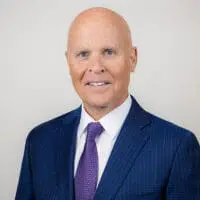Environmental & Natural Resources Law
Renewables Sector May Reap Windfall from Paris Climate Summit
On November 30, 2015, world leaders converged in Paris for COP 21—the United Nations conference on climate change. This is the 21st year that countries from around the world have come together with the goal of reducing the impacts of global climate change. While negotiations are still ongoing, it is expected that the conference will result in a new international agreement that attempts to keep global climate change below 2°C.
The major component of the negotiations which, if successful, could result in a windfall in the renewables sector, are the Intended Nationally Determined Contributions (“INDCs”). The INDCs are country specific, and reflect each individual country’s goals for reductions of greenhouse gas emissions. For example, in its INDCs, the U.S. has committed to reduce its greenhouse gas emissions 26 to 28 percent below 2005 levels by 2025 by, among other things, reducing CO2 emissions from coal-fired power plants.
The U.S.’ INDC commitment, along with similar commitments from other global superpowers, could result in tremendous demand for renewable energy over the next fifteen years:
“[I]f Brazil, China, the European Union, India, Indonesia, Japan, Mexico, and the United States—which together represent 65 percent of global energy demand—follow through on their INDCs, the amount of clean energy on the grid will more than double by 2030. That represents an increase from approximately 8,900 terawatt-hours of global clean energy in 2012 to 19,900 terawatt-hours in 2030.”[1]
It is unclear how, exactly, the U.S. will meet its ambitious goals in light of deadlock in Congress. Nonetheless, the mere occurrence of the conference this year has fostered renewed interest in clean energy. For example Google just announced that it has committed to purchase an additional 842 megawatts of renewable energy, bringing its total renewables commitment to 2 gigawatts[2]. And French officials announced that France would fund $2.2 billion worth of renewable energy projects in Africa through 2020.[3]
Renewable energy developers, investors, and other stakeholders may wish to pay close attention to the talks playing out on the international stage, and anticipate increased demand for renewable energy globally, nationally, and locally in the coming years.
[1] http://www.motherjones.com/environment/2015/11/clean-energy-future-paris-climate
[2] https://www.washingtonpost.com/news/energy-environment/wp/2015/12/03/google-just-announced-a-gigantic-new-clean-energy-investment/
[3] http://www.bloomberg.com/news/articles/2015-12-01/france-to-fund-eu2-billion-africa-energy-projects-through-2020


























